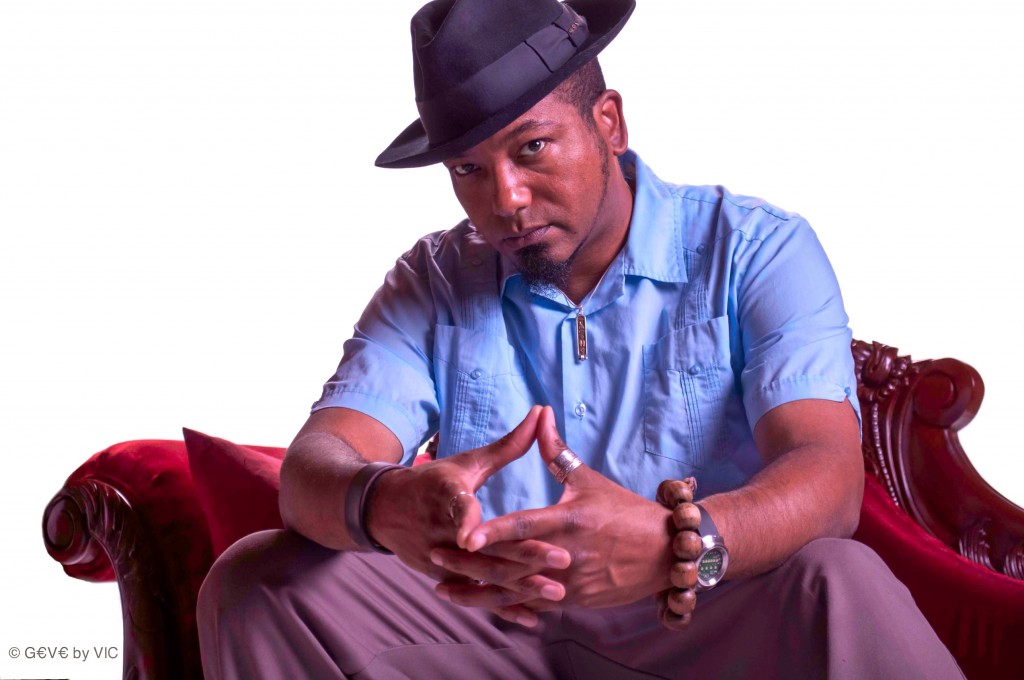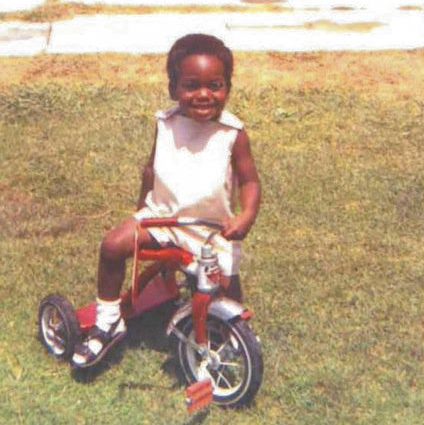
Meet Damien, my Facebook friend, photographer, and IT guy.
This morning, he messages me: “I would like to make an appointment.”
I reply: “For?”
“High blood pressure :(.”
I offer to see him, but he never comes in. Weeks later, he writes, “I got busy Pam. How are you? High blood pressure pills keep making me sick. I am doing the best I can. On bad days it is like 208/118.”
Friends don’t let Facebook friends die. And 208/118 is incompatible with life. I’m a family doc–a sleuth. It’s my job to spy on people. On Damien’s page, I find a dozen photos of lynchings–his reaction to today’s Trayvon Martin verdict. A black boy murdered in a land where killers roam free. Trayvon died a senseless death, but Damien shouldn’t have to. I suspect today is a bad day for Damien’s arteries. So I call him up. “I’m worried about you, man. I’m coming over to check on you tonight.” An hour later, I’m in his living room.
 Damien didn’t always have hypertension. As a child, he loved music, dancing, and cruising around the neighborhood on his red tricycle. He was peaceful, happy–until the day he saw two dark men on the hood of a police car. “The police were beating the crap out of them. I asked my dad why. He said, ‘Son, this is the way things are. You’re gonna have to get used to it.'”
Damien didn’t always have hypertension. As a child, he loved music, dancing, and cruising around the neighborhood on his red tricycle. He was peaceful, happy–until the day he saw two dark men on the hood of a police car. “The police were beating the crap out of them. I asked my dad why. He said, ‘Son, this is the way things are. You’re gonna have to get used to it.'”
I ask Damien about his family.
“There’s high blood pressure on both sides of my family. Mom was diagnosed at 13. I’m of Jamaican, African, and Native American descent. I didn’t know much about my ancestors until recently,” he explains.
 “In junior high, I was taught my people were slaves. After class, I asked my history teacher if Native Americans and Africans were anything more than just slaves. Did they do anything great? It was an innocent question. I was curious. Genuinely concerned, my teacher put his hand on my shoulder and said, ‘Damien, it’s unfortunate, but it’s true that white people are superior to black people and Indians. The only hope for your people to get out of the situation they are in is to get an education and buy property.'” Damien was shocked. He explains, “We are taught that we’re a slave race. It’s a psychological weapon. No doubt about it. The message I received in school: You guys are slaves. We kicked your ass. And here’s all the great things we’ve accomplished as a result. That’s American history.”
“In junior high, I was taught my people were slaves. After class, I asked my history teacher if Native Americans and Africans were anything more than just slaves. Did they do anything great? It was an innocent question. I was curious. Genuinely concerned, my teacher put his hand on my shoulder and said, ‘Damien, it’s unfortunate, but it’s true that white people are superior to black people and Indians. The only hope for your people to get out of the situation they are in is to get an education and buy property.'” Damien was shocked. He explains, “We are taught that we’re a slave race. It’s a psychological weapon. No doubt about it. The message I received in school: You guys are slaves. We kicked your ass. And here’s all the great things we’ve accomplished as a result. That’s American history.”
“So how did you end up in Oregon?”
“Los Angeles is a dangerous place to be black. I’ve lost a lot of friends to violence. I’ve seen people get shot. I’ve watched them die. Back home, when a black man calls for help, police show up to harass him. I’ve been denied jobs, even hotel rooms, because I am black. Back home, I always dress nice. Yet a white woman will look at me with a frightened expression, grab her purse, and move away from me like I’m going to mug her. I am a friendly guy. I’m here because I got sick of being shut down.”
“Mind if I check your blood pressure?” Damien sits on the sofa, takes a deep breath, and offers me his right arm. “Wow. It’s 150/89–better than I thought. Let’s check the other side”
Suddenly, there’s a knock on the window. A flashlight shines into his living room. Before I understand what’s happening, Damien’s hands are up in the air. A police officer tells him to come outside. We learn that the cop is searching for a lady who’s driving recklessly through the neighborhood.
I’m relieved that nobody is hurt, but Damien is agitated. He’s pacing. His post-police blood pressure: 205/109.
He sits down. He stands up. He sits down. I check him again: 189/105.
He stands up. He calls his daughter. “Hey sweetie, I need you to get down if you hear anything. I love you.” She’s visiting his mom in L.A., where drive-by shootings are the norm. “My mom jumps in the bathtub when she hears gunshots,” he tells me.
I recheck his blood pressure: 167/98.
“Hey Damien, can you tell me what medicine your doctor has you on?”
“I’ve been on so many pills. Most recently Lisinopril. But my pressure went up. My heart was racing. I got anxiety. Doctors have been giving me experimental drugs for years. White men’s medicine doesn’t work for me.”
Maybe taking white men’s medicine–drugs developed by one’s oppressors–raises blood pressure. I never thought about that before, but it makes sense now. Could be the anti-placebo effect.
“Why don’t you lay down, relax? I’ll make you some tea.”
In Damien’s cupboard, I find hibiscus. “Hey, do you know hibiscus is native to Jamaica? It even has blood pressure lowering effects.”
As he sips his tea, I help Damien understand what’s going on. “Emotional distress clamps down your arteries and causes you to retain sodium. When you raise your blood pressure, you are beating yourself up inside–punching your heart, brain, kidneys with each heartbeat. Try to let go of your fear and anger, Damien. Don’t internalize the racial oppression, man. Please . . .” I lead him through a meditation to release his inner torment. Thirty minutes later, my friend’s blood pressure is 136/72.
People with hypertension die prematurely of heart disease, stroke, kidney failure. I think I know why Damien developed such high blood pressure. I consult Harrison’s Textbook of Internal Medicine and confirm the sad statistics: urban blacks have twice the prevalence of hypertension as whites and more than four times the hypertension-induced illnesses. A chart lists risk factors for bad outcomes in hypertensives. The top three: black race, youth, male sex.
Maybe Damien is carrying the pain of his ancestors who were kidnapped, shackled, brought here against their will. Maybe his arteries clamp down when he sees cops because so many of his friends were harassed, rather than protected, by them. Maybe his body is responding normally to the daily stress of being a black man in America.
Damien’s is 45. Since his early 30s, doctors have diagnosed him with essential hypertension, a form of high blood pressure for which no cause can be identified. Essential hypertension is a cop-out, a trashcan diagnosis. Why? The majority (95%) of hypertensives are dumped into this category. We tell them to lose weight, stop smoking, avoid salt. But Damien isn’t obese. He doesn’t smoke cigarettes. He rarely drinks alcohol. He eats mostly lentils and rice. The guy drinks lemon water.
“Essential” means absolutely necessary, vitally important. To treat essential hypertension, it’s absolutely necessary and vitally important to understand why a human being would develop blood pressure incompatible with human life. For Damien, the “unidentified” cause is racism.
“Unimportant” is the opposite of “essential.” To be satisfied with the diagnosis of essential hypertension is to declare the real cause unimportant–and that’s exactly how racism makes people feel.
 Pamela Wible, M.D., is a family physician in Eugene, Oregon. She is author of Pet Goats & Pap Smears: 101 Medical Adventures to Open Your Heart & Mind and the founder of the first community-designed ideal medical clinic in America. Contact her at idealmedicalcare.org. Photos courtesy of GeVe.
Pamela Wible, M.D., is a family physician in Eugene, Oregon. She is author of Pet Goats & Pap Smears: 101 Medical Adventures to Open Your Heart & Mind and the founder of the first community-designed ideal medical clinic in America. Contact her at idealmedicalcare.org. Photos courtesy of GeVe.














this is really great writing. and you are awesome.
love,
bodhi 🙂 <3
Thanks sweet soul. Love you! Please spread the love on MLK Day!
I read on my iPhone email earlier today the headline that racism causes hypertension (HTN). Then I came home to my computer and read the whole story. But here was my first thought. If one is racist they are at higher risk of HTN. Learning about Damien I realized that fear, feeling that he has been unjustly treated (and probably rightly so), anger, anxiety and all sorts of emotional feelings have likely contributed to his HTN. This makes sense to me.
Here’s what else makes sense. Those out there with racism in their heart are mean spirited, often angry about nothing, feeling like they must get even and often dwell on some perceived injustice due to their racist views and fears are probably at a higher risk of HTN as well. I don’t know of any studies and I can’t prove this but it makes sense to me. Shed the hatred and fear, get healthy.
Yes. Racists must have high blood pressure too. I just need to follow racist patients around and see if I can monitor their blood pressure while they are screaming the n word at sweet souls like Damien.
Any volunteers?
No. I wouldn’t want to do them any favors.
This is an unbelievable piece of nonsense that I am speechless reading. How about stress as opposed to racism? His perception is the problem and perhaps just perhaps that stress is the problem. He already has hypertension, he has a family history and he is not treated correctly. What has happened in this country is now anything that happens to a Black person is racist. This instance he already has hypertension and you write this as if racism is the cause- I’ve been a doc for a long time, a lot in Detroit and never ever was that brilliant to blame it on racism
I think there are many causes to health problems that are overlooked. And some things are hard for physicians to appreciate without spending the time to identify what is the root of a patient’s problem. What causes the stress? Many people do suffer (of benefit) daily just due to the color of their skin.
It happens.
Yet studies have shown that African Americans that do not internalize the stress, frustration, anger and depression of being subject to racism and complain about racist abusers do not have HTN
Wonderful Pamela!
Angela
Im a 34 year old yes im young i had a wreck in 2009 messed up my back i live in a small town scott co tn i also have panic attacks been in and out of stat custody snice 6 year old until almost 18..any way i tk 4 pain pills a day 4 five year and 2 1mg zanx a day for 4 years….im a transgender ftm never had a prlbm til my old dr found out now see this new one 4 3 mths i tld her the second mth so the same thing wldnt happen she wrote me my meds the first mth no she tryen 2 take me off all my meds and every1 in the office is rude 2 me my dr even took me bk 2 the room wthout seen the nurse and just let me have it say my med where filled i tld coldnt be my drug store or ins wldnt fill early i got the paper print out of my med they wld not look at it i dnt knw what to do dnt want 2 look like im dr shoppen but needs 2 be done every ti e i go mt bp is 130/110 or 100 i need some helpful advise be4 i stroke out cause im in pain and most of all when i have 2 go there i have painic attack causen my bp to go up….thank u
Sorry now every 1 at the new dr office is rude 2 me only been going there for 3months first time be4 i told her no problem filled all my med 2nd time i tld her everything has been going down hill she doesn’t wont 2 write my meda every1 is rude including the recipients now the dr say i filled my meds early i got the tn print out 2 show her she wldnt look at it i have even took some1 wth me cause she says 1 thing and puts another in my chart when i show them proof they make up something else…one time i was in the waiten room instead of the nurse coming to get me 2 do my vital be4 seeen the dr the dr, the dr herself got me took me 2 a room and just let me have it…i may be diff. But i sld be treated like any other human being i dnt knw what 2 do something has 2 change my bp goes up 2 130/110 or 100 when i go there i h need some advice what 2 do be4 i stock out i dnt want 2 look 4 another dr this soon without looking like im dr. Shipping
So important to find a doctor that you can have a lifelong relationship with. Don’t put yourself in the hands of someone who you do not trust and who you do not feel has respect for you.
Thank u put live in in a biblebelt small town 2 far to drive any where eveything else is over an 1hr away
I have a patient profile case can you help me or guide me thank you ..
Happy to talk. Reach me via contact page.
Do it yourself, you don’t think all this is going to go away just like that. These are comments from professionals. It’s nit the title or the bought degree to hang on your wall– it’s common sentimentality that is emitted especially, because your not a novice at assessments and diagnoses supposedly. That’s what we ignorant people think.
I just usually change doctors. Over and over. Like new job– new doctor.
Im a victim of racial and patient abuse of force and stangled by law enforcement in the emergency room. And abused by the government security guards and held against my will for 11 days . They punished me by holding me hostage in an insane assylum. Mandated i take a covid 19 shot. And they would incarcerate me until i take an injectuon. I refused. Held hostage 11 days giving a citation at the hospital windowof for unauthorized use of a car and booked in for psychorphrenia warrantless abuse armed school board fbi agents off duty irs agents using a richmond field office memo labeling chaplain and parents as terrorists for exercising our constitution and i thought freedon from tyrants. thugs and armed criminals. Humane abuse and terrorized and traumatized.
In addition to being subjected to armed irs probation parole and venezulan gremlin gang member swats w ghost vehicle’s and on the payroll. Off duty armed swats working from home terrorizing Lexington Kentucky! Deep State COPS VERY BAD ACTORS . VENEZULAN GREMLIN GANG MEMBER ON PAYROLL. OFF BOOK KILLING AND GOING AFTER A CHAPLAIN AND BLACK PARENTS FOR GOING TO THE DEPT OF EDUCATION SCHOOL BOARD TO TELL THE WORLD DO NOT PUT A PINK TU TU ON MY nephew AND MAKE HIM A SISSY. SON. And do not bring in drag queens to read to them and tell them to hate whites. They are literally running as a terrorist group. All commonwealth states. Bad actors in all public safety and e911. They stacked me with a ricco. Desecrated my bible my family home. Wanton and malicious destruction malfeasance vile and a part of the iranian red army regime. They control everything. Full operations sewer water gas esp aviations. The govt desecrated my farm home ante belle mansion south plantation desecration and stile my fanily farm. Stole my 4th generation farm with the help of the fbi doj and gaval. Im hit. I need Kash Patel. Urgent.
My heart goes out to you. Now the hunters ad being hunted. All started with the Hunter Biden laptop.